
Walking on top of curtain rods - a favorite activity
Lulu was an F1 / 50% African Wild Cat x barn tabby. He was born in Kenya, in the Ngong Hills forest. Lulu came with me here to Burundi, on the north End of Lake Tanganyika – dying at the age of 13 of a kidney complication, which could not be treated because of a lack of medical facilities.
Like his African Wildcat relatives, he was most happy when arboreal, and as I caught him in the pictures above and below, loved to walk around on top of the curtain rods. Anything even remotely ‘climbable,’ he would climb.

Until recently, home was a six-sided, African styled house - having many curtain rods kept him busy.
Being an F1, Lulu exhibited extraordinary hybrid vigour – enhancing characteristics of both his parents, fearing nothing and always open to new challenge – and far more intelligent than my fully domestic cats (2 Burmese).

A favorite resting place, from which he could both look outside as well as keep track of what was going on in the house.

Another favorite location, good for remaining in the house while also aware of happenings out in the 'jungle'.
Why the name ‘lulu’ for a male cat? When I got him we all thought he was a female, and so I named him lu’lu’ – لؤلؤة – which is the word for ‘pearl’ in Arabic – he had little grey ‘pearls’ on his stomach:


Holding audience on an African textile.

Favorite chair

An African wildcat 'in the wild' (Felis silvestris lybica) (c)wysinger
Related articles
- Christmas in Africa: Village-Style in Burundi (dianabuja.wordpress.com)
- Country Profiles: Burundi (trifter.com)
- Burundi: A Nation Trapped By A Crocodile, Its Born-Again Track-Suit Addicted President, And The Mountains (nakedchiefs.com)
- Caturday felid: housecat is surrogate mom to endangered species (whyevolutionistrue.wordpress.com)





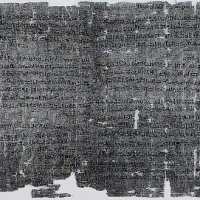

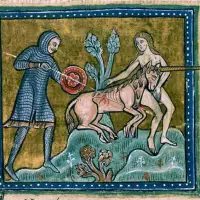


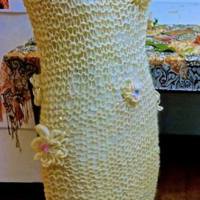

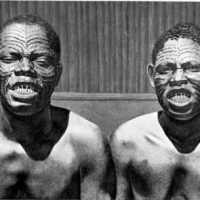
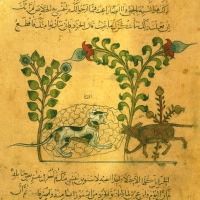













I live in New York State USA. I had an outside Friend cat maybe an escape from maybe an exotic owner, I suspected was an African wild cat due to his fur and markings. He was an exceptionally friendly cat to me and always wanted my acceptance and friendship it seemed. I fed him outdoors and tried to take take of him best I could. He was sleek and muscular. His fur was robust and weather proof unlike a domestic cat. He was an incredible hunter of mice and would leave me dead mice in his food dish to show me how good a hunter he was. I named him slim because he was always very trim and fast. He resembled a traditional African wild cat.
LikeLike
Sorry for the delay, have been quite ill since late Aug but now returning (slowly). Interesting – your kitty – sounds like a possibility! I knew Lulu’s background, as I was at the time living in Kenya and his wild papa roamed about us!
LikeLike
Thank you for the lovely comments! Our guy is definetelly not a regular cat, he’s way too proud and fearless, and although he express some love from time to time, he generally doesn’t like to be pet or touched! He’s extremely intelligent and very playful, although he plays rather rough and the scars on my hands can prove it! We feed him on raw meet only to keep his natural diet as much as possible 🙂
LikeLike
Eliza – so, a very feisty little guy! That’s ok. So was Lulu-cat. As for feeding, straight raw meat is not a good diet – it is not well-rounded. In the wild, cats (and other hunters) eat first the belly and intestines, with all of the wonderful greens and other things ingested by their kill. So, forget the raw meat – go with a well-balanced cat food. If you are living still in Africa (as am I), then you can make your own and I can send you simple instructions, if you would like.
dianabuja.
LikeLike
This will be great! Im still in Africa, Lagos – Nigeria to be precised.
The guy eats cat food when we run out of chicken (normally for a day or max 2) but he doesn’t like it and is getting more n more demanding for his meat… I also give him egg yellow and egg shell for Calcium and fish and sometimes hotdogs and other meat sub-products..
I really don’t want to feed him with off the shell cat food, I know what they put in it n I strongly disagree, but you have a valid point and I appreciate your advice!
You can email me or post it here (eliza.jurewicz@gmail.com)
By the way, is Lulu still with you?
Thanks!
LikeLike
Good you are giving varied products, tho best not the hotdogs and so forth… I’ll send you instructions for making cat food over the weekend, please remind me if it dosen’t come, we’re deep into heavy rain planting season here! Very sadly, Lulu-cat died, of a kidney infection and I could not access the proper meds here. One of the downsides of life in central Africa…
LikeLike
LikeLike
Elisa – thank you, my computer just now refuses to accept videos so I’ll look at this over the weekend elsewhere! Looking forward to it! 🙂
LikeLike
Hi,
We have a 6 months old Africa wild kitten. He might be a hybrid, we will never know as we found him – the mother must have left him behind.
His name is Guy and you can see a video of him playing when he was 4 months.
He is really fearless, stubborn and playful. We love him to bits!
Pls feel free to leave comments, or if anyone have had similar experience, get in touch 🙂
LikeLike
How lucky you are! Aside from DNA work, it would be his behavior that would suggest his parentage as all or partly wild. With Lulu, though he looked like a domestic, his behavior, intelligence, and physical abilities all secured his ancestry.
Best of luck with your ‘baby’!
LikeLike
Pingback: jaket kulit
Both pictures and comments touch my heart and mind. Glad to have these images, both visual and written. Thank you for introducing me to Lulu and the African wild cat.
.
LikeLike
Thank you, Cara, for your kind remarks and I’m pleased to have introduced you to a little bit of ‘africa’ – my visions of it…
LikeLike